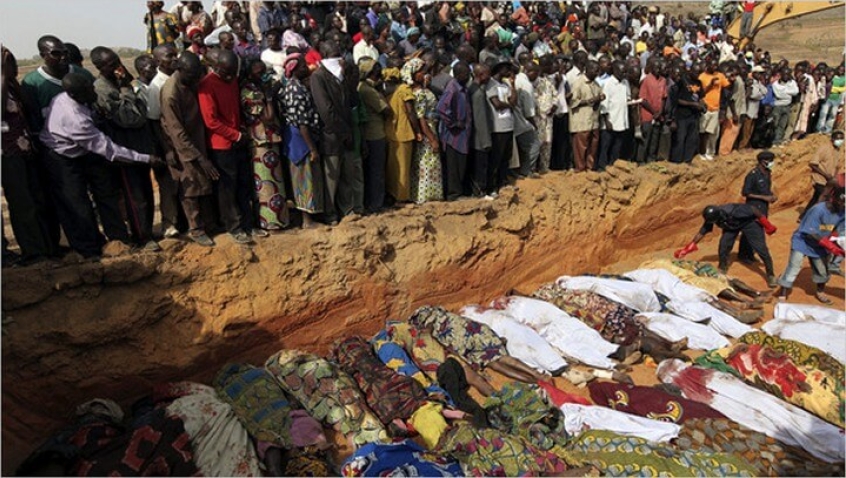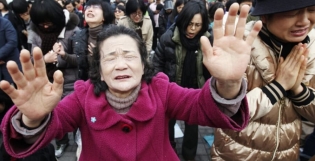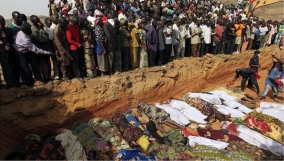
Up 40 people or more have been slaughtered in a new atrocity by an armed force of Fulani herdsmen in Nigeria's Enugu State, according to local reports.
In the run-up to the massacre, local news sites commented on the arrival of 500 heavily-armed herdsmen in and around seven villages in the Nimbo area.
Ten homes were razed by arson, cars and motorcycles were destroyed, animals killed and Christ Holy Church International also burnt to the ground, the Nigerian news site Vanguard reported.
One young man died when the bus he was travelling in was set fire to near the church.
One victim, Kingsley Ezugwu, speaking to Vanguard from his hospital bed, said: "I was coming out from the house when I heard the community bell ringing. I was going with a friend to know what the bell was all about, only to see about 40 Fulani herdsmen armed with sophisticated guns and machetes.
"They pursued us, killed my friend and shot at me several times but missed. They caught up with me and used machetes on me until I lost consciousness."
When the attackers realised he was still alive, others were summoned to finish him off. He managed to crawl away and said he was helped to hospital by a "good samaritan".
Many survivors fled the villages.
A spokesman for Rochas Okorocha, the local governor, said: "Our problem in this country is that whatever happens is given an ethnic colouration and that makes the solution to such problem somewhat difficult."
According to the Igbo Youth Movement, Fulani herdsmen have murdered more than 700 Nigerians in the last 10 months, with the Federal Government taking no action to halt the killings.
Brigadier General Rabe Abubakar, a defence spokesman in Nigeria, told IBTimes that security forces were investigating the killings. "Security agencies will issue a statement soon, investigations are ongoing," he said.
He was unable to confirm the numbers killed in the latest attack. Estimates in Nigeria range from 20 to 48 people.
















